I lost both my parents in my 20s. Running is what saved me
The biggest challenge of my life has been losing both my parents under tragic circumstances in my mid-20s. My mental well-being, resilience and ability to adapt were tested like never before, but those challenges also opened new doors for me that I previously never considered exploring.
Like running.
I’ll start at the beginning, though: I was raised in a middle-class suburb of Princeton, New Jersey, by two supportive parents who were public school teachers. My mother, a sixth grade language arts teacher, kept me focused and held me accountable. My father, a high school history teacher and varsity soccer coach, encouraged me to dream big and believe in myself. They divorced well before I entered high school but remained amicable, and my siblings and I were raised with an immense amount of love and support. I excelled in high school and was accepted to my top-choice college.
After four enjoyable years of playing varsity football and graduating with a business degree, all of the figurative momentum in my life came to a screeching halt. Just three months after my college graduation, my father — my idol, my mentor, my best friend — took his own life on a Sunday morning in late August. I found out later that he had been battling severe depression for months. He kept everything from me in an effort to not cast a cloud over my final semester of college, and to not distract me while I was going through the high-pressure application and interviewing process for my first real job in New York City.
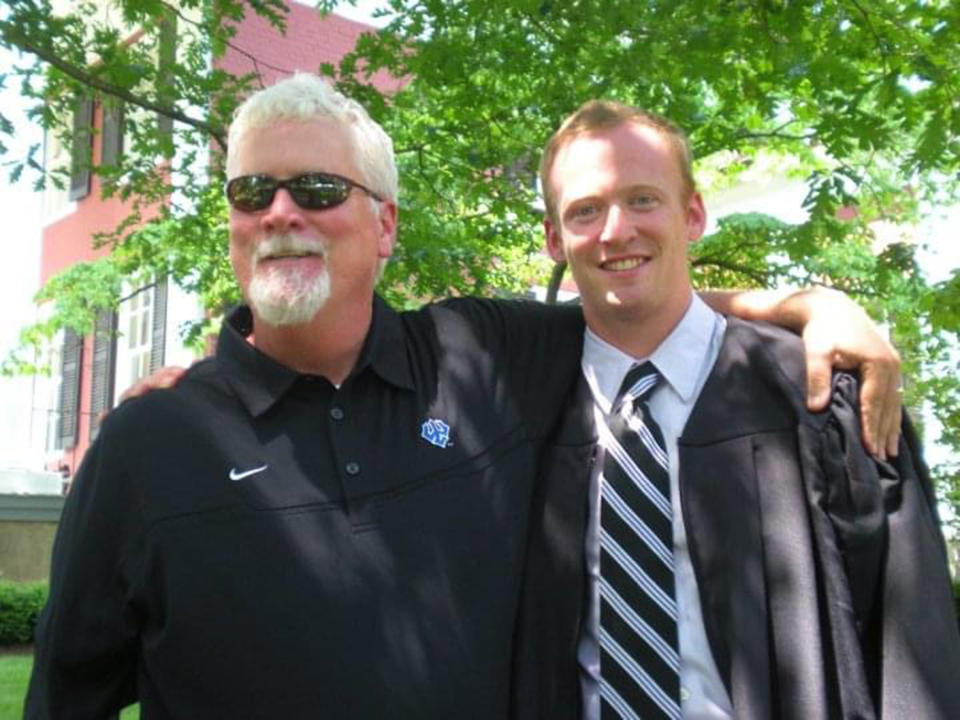
His suicide hit me harder than anything had hit me in my life. I sank. I began to shut people out. Eventually the guilt crept in as I wondered how I could’ve prevented it. I initially refused to tell anyone at work about his suicide in fear that people would judge me or treat me differently, or overlook me for projects and promotions. Some of the thriving relationships in my life started to slowly fall apart when people realized how closed off I had become, and how much work became my main focus and distraction. In my 22-year-old mind, I was simply trying to move forward to lead a “normal life.”
Over time, I found ways to cope and slowly open up to people, but just four years later, grief and hardship struck again. I was 26 years old and had just gotten a big promotion at work when a routine check-up for my mom quickly landed her at Memorial Sloan Kettering Cancer Center in New York City. Tests, scans and biopsies over the next few days revealed that she had stage 4 pancreatic cancer, a bleak diagnosis with a 5-year survival rate of 1%, according to Johns Hopkins Medicine. Over the next 18 months, my mother endured more than 50 chemotherapy sessions. I worked remotely and sat with her through nearly all of them. While I knew I was helping her emotionally, I could feel myself becoming overwhelmed with the weight of the stressors that were consuming my life again.
My mom had always been a runner, but quite frankly, as an outsider, I found the hobby monotonous, intimidating and boring. Why would anyone voluntarily run around for 60 minutes straight, let alone sign up for a marathon?! It was around this time that my mom was beginning to sense how overwhelmed I was and began to encourage me to find a new outlet, like running.
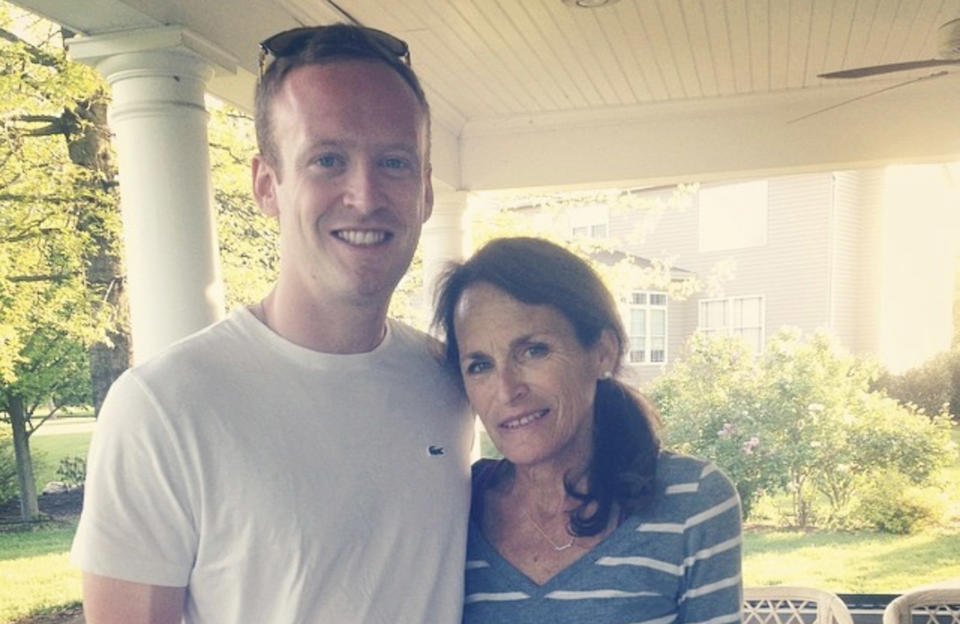
Eventually, I took her up on her advice and waltzed out of my apartment one sunny May day to finally give jogging a try. No goal — just go and see how my body reacts. At this point, I had never run more than one to two miles continuously in my life. On that evening, I went out for three miles over the course of 30 minutes and came back a changed person. I was mentally stimulated in a way that I had never felt before. I was able to decompress from my workday, process my thoughts about my mom and other things going on in my life. I wasn’t staring at a phone or computer screen or TV in an effort to decompress anymore. I was simply taking in my surroundings with a new appreciation for movement and the outdoors and my body’s ability to completely transform the way I felt in just 30 minutes.
Two days later I went out for 32 minutes, then for 35 minutes, then for 40 minutes. There was no goal in mind, no pace I cared about; I simply wanted to use that sacred time to unwind from my day’s stressors and come away feeling fresh. And it worked!
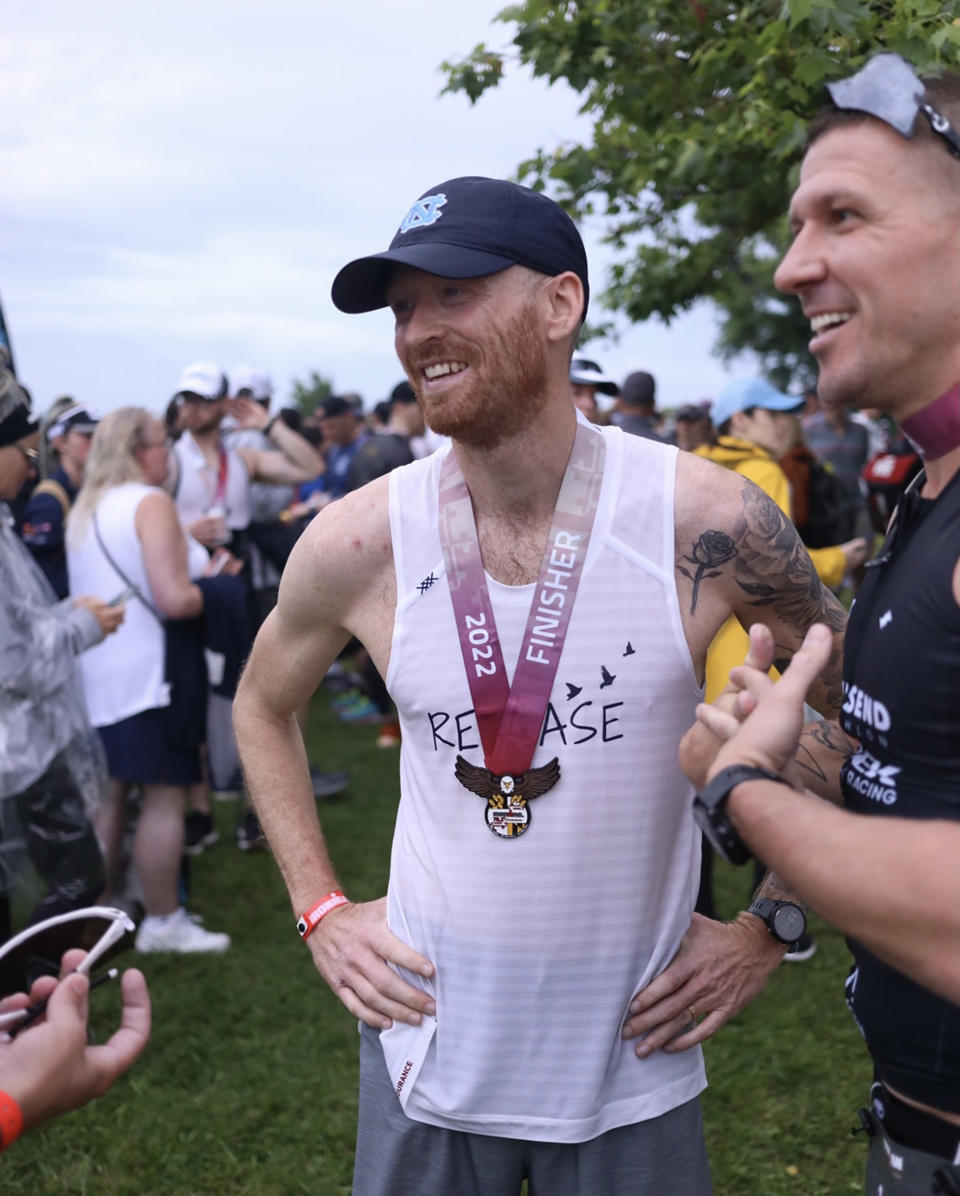
I always told my mom we were in this battle together, fighting for her to beat cancer. And just 6 months after starting running, I signed up for the New York City Marathon to raise money for Project Purple, an organization devoted to “a world without pancreatic cancer.” I knew that my mom was my “why” and she would motivate me to continue this new lifestyle I had carved out for myself.
Unfortunately, in October 2015, I sat in the room as we said goodbye to my mom for the last time. It was just seven days before my second New York City Marathon. My dad was gone, and now my mother was gone, too. But before she died, she had already given me the greatest gift of my life: the motivation to just get outside and do something. To run.
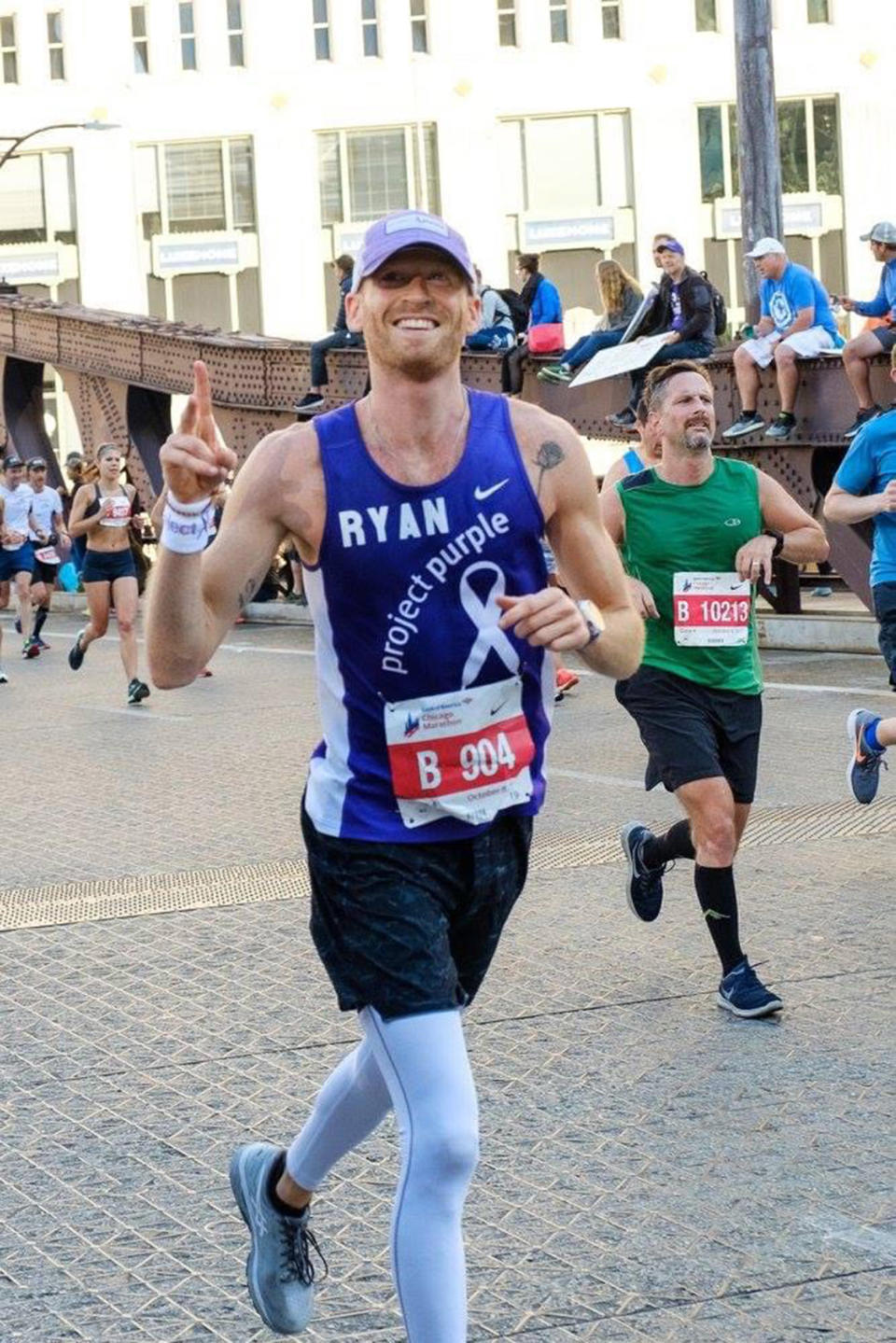
A year later, I decided to join a run club in New York City so I could meet other people who enjoyed exercising outside and training for races. A few weeks later at that run club, I met my future wife when she walked in the door looking for the same thing. As my uncle said at our August 2021 wedding, “If your mom didn’t unfortunately get sick, you never would’ve gotten into running. If you had never gotten into running, you wouldn’t have joined a run club. And if you hadn’t joined that run club, you potentially wouldn’t have met the love of your life.”
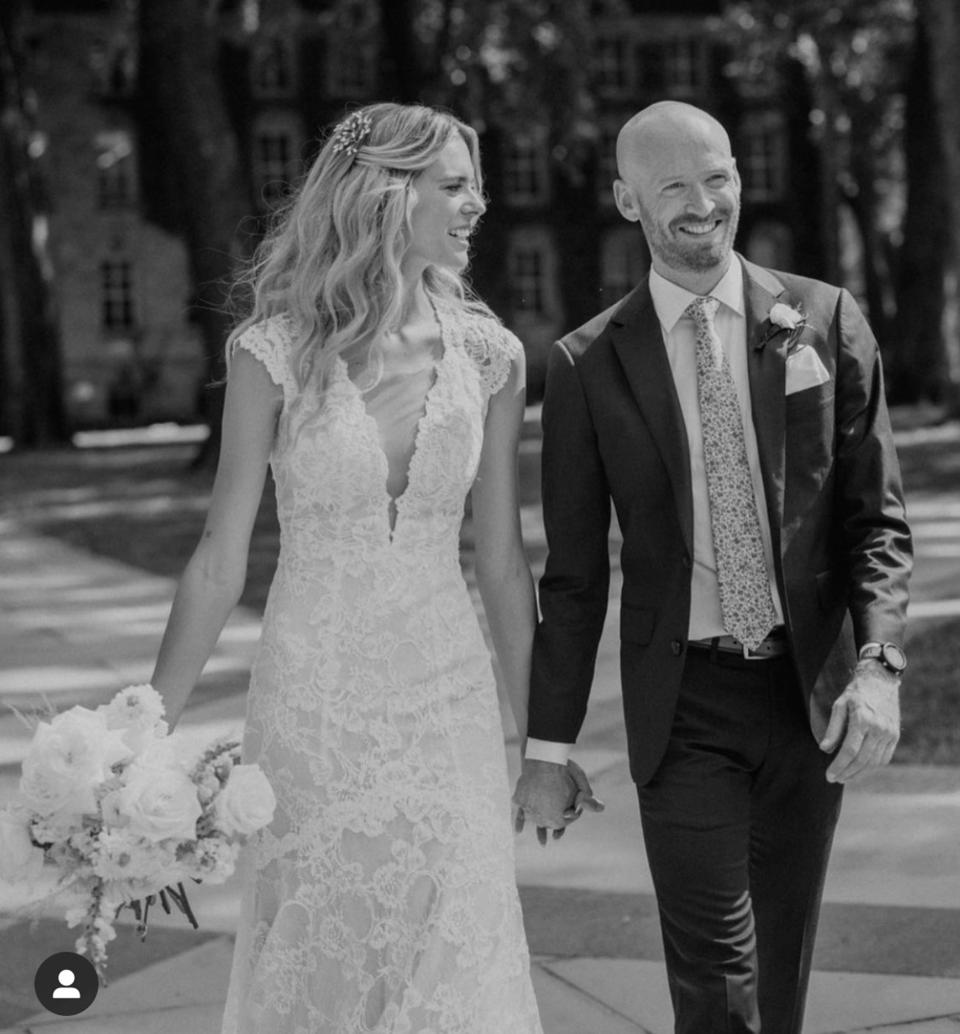
Processing loss, adapting to change, going through major transitions and overcoming life’s obstacles looks different for everyone. But when it all feels insurmountable, don’t overlook the simple joy and gift of being outside and moving. It just might change your life!

